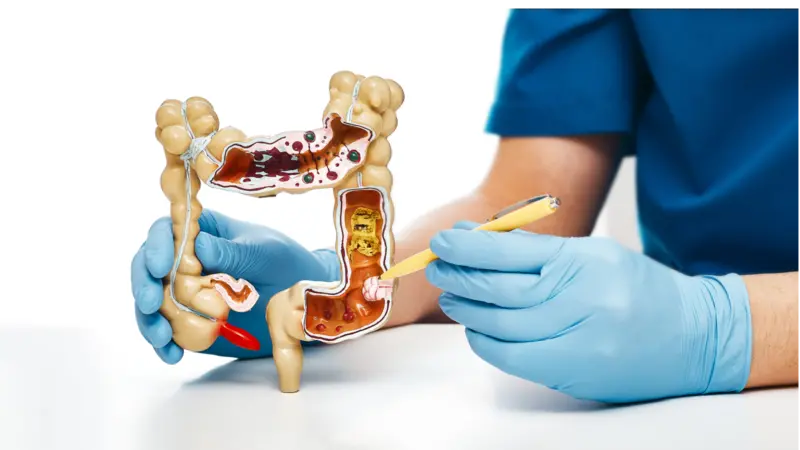

Chronic Conditions and Diseases

Chronic Conditions and Diseases
Colon Cancer Rising Among Young Adults
Colon cancer is on the rise in young adults, according to a new report, “A Common Cancer at an Uncommon Age” published last week in the journal Science.
Colorectal cancer diagnosed in individuals under the age of 50 is also known as early-onset colorectal cancer, or EOCRC. The most common symptoms of EOCRC include abdominal pain and rectal bleeding. Patients with EOCRC are often diagnosed with more advanced-stage disease, and have worse survival rates compared to later-onset colorectal cancer (CRC).
EOCRC has risen at an alarming rate of 2 to 4% per year in many countries since the 1990s and is anticipated to become the leading cause of cancer death in those aged 20 to 49 by the year 2030. One in five CRC cases diagnosed today is in people younger than age 55, compared to one in 10 cases in 1995, according to a new report published by the American Cancer Society. This increase in EOCRC reflects a “birth cohort” effect, where the increased risk is carried through generations due to changes in environmental risk factors that disproportionately affect those born in recent decades compared to those born earlier.
Several of these risk factors, including early-life exposures, have been shown or proposed to contribute to the rising incidence of EOCRC. Obesity and other conditions related to metabolic syndrome (such as hypertension, hyperlipidemia, hyperglycemia, and type 2 diabetes) are also associated with CRC risk. Dietary factors such as sugar-sweetened beverages, red and processed meat, and Western diets have also been implicated, as has the increased use of antibiotics, more ubiquitous environmental toxins, and higher rates of Cesarean sections and other surgical procedures. Other possible reasons include genetics, low screening rates, and misdiagnosis.
The researchers note the “compelling body of evidence supporting the role of the gut microbiota” in CRC, and call for more research on the microbiome for EOCRC early detection and assessment.
The American Cancer Society and US Preventive Services Task Force have recently recommended to start CRC screening for the average population at age 45 (versus the prior recommended age of 50) as a first step in recognizing this epidemic. However, many patients who do not meet even this updated recommended screening age. The researchers call for the establishment of specialized centers that are focused on EOCRC patients in order to establish a model of comprehensive clinical care for this population, as well as multidisciplinary research, screening in younger age groups, and earlier detection using blood-based biomarkers in order to better understand, prevent, and treat EOCRC.
REFERENCES
Giannakis, M, Ng, K. (2023, March 16). A common cancer at an uncommon age. Science. https://www.science.org/doi/10.1126/science.ade7114
Siegel, R., et al. (2023, March 1). Colorectal cancer statistics, 2023. CA: A Cancer Journal for Clinicians. https://acsjournals.onlinelibrary.wiley.com/doi/full/10.3322/caac.21772


 By
By







